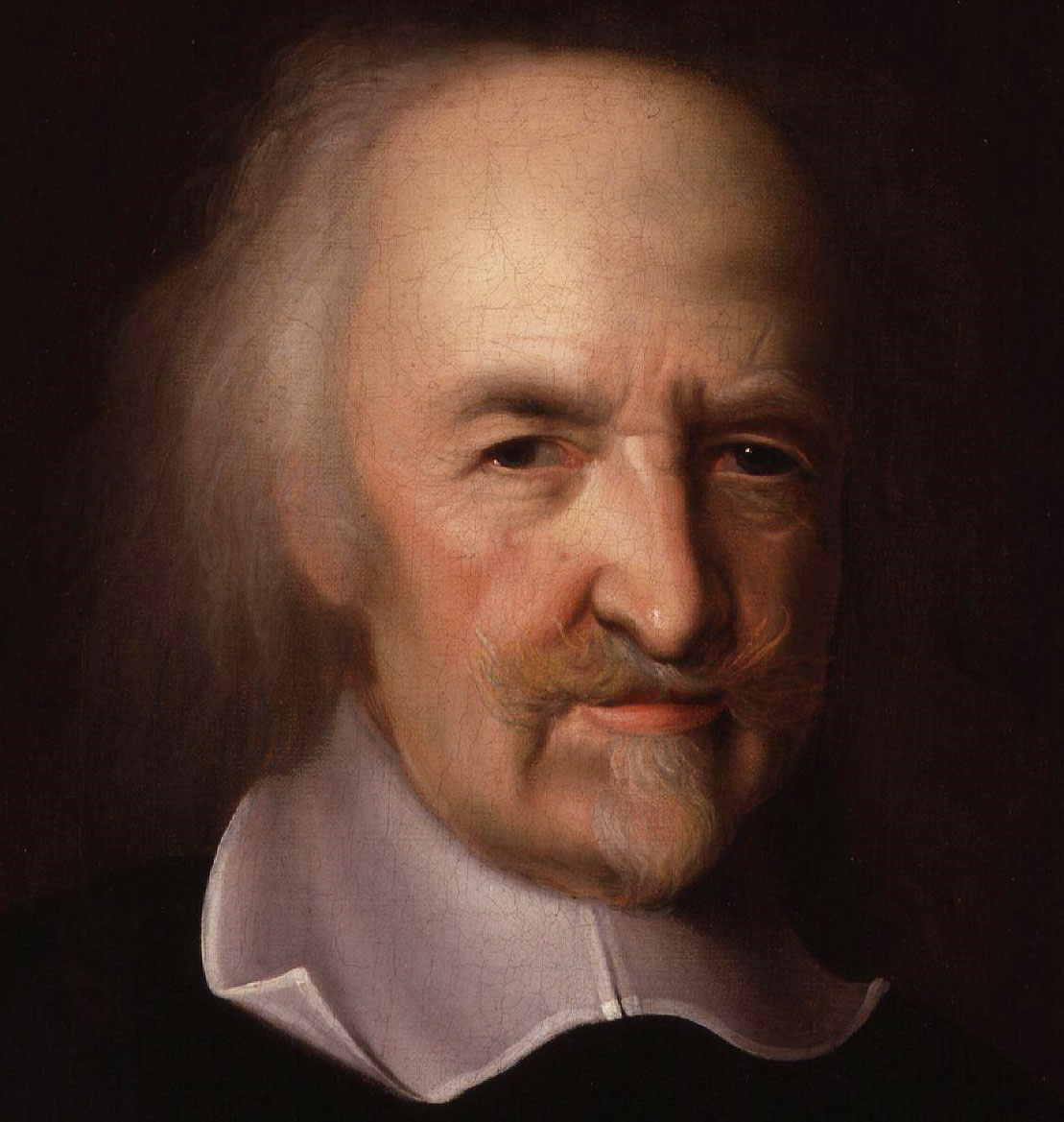Origine: Il riferimento è alla cosiddetta Tromba di Torricelli o Tromba di Gabriele, solido ideato da E. Torricelli.
Thomas Hobbes frasi celebri
“L'interesse e la paura sono i principi della società.”
da Il cittadino
controllare, mancano informazioni bibliografiche
Variante: L'interesse e la paura sono i princìpi della società.
Thomas Hobbes Frasi e Citazioni
parte I, XIII, traduzione italiana di M. Vinciguerra, Laterza, Roma-Bari, 1974, pag. 109
Leviatano
parte I, XIII
traduttore?
Leviatano
“L'errore di un uomo non diventa la sua legge, né lo obbliga a persistere in esso.”
Parte II, XVI
Leviatano
“L'autorità, non la verità, fa la legge.”
II, 26
Auctoritas non veritas facit legem.
Leviatano
“La saggezza si acquista non con il leggere i libri ma gli uomini.”
libro Leviathan
libro Leviathan
“Prima bisogna pensare a vivere, poi a fare della filosofia.”
citato in Giuseppe Fumagalli, Chi l'ha detto?, Hoepli, 1921, p. 477
Attribuite
Thomas Hobbes: Frasi in inglese
The Fourth Part, Chapter 47, p. 386(See also: Arnold J. Toynbee, A Study of History, Volume I)
Leviathan (1651)
“Fact be vertuous, or vicious, as Fortune pleaseth;”
The Second Part, Chapter 27, p. 153
Leviathan (1651)
“And as in other things, so in men, not the seller, but the buyer determines the Price.”
The First Part, Chapter 10, p. 42
Leviathan (1651)
“The Register of Knowledge of Fact is called History.”
The First Part, Chapter 9, p. 40
Leviathan (1651)
The Second Part, Chapter 22, p. 122 (See also: Secret society)
Leviathan (1651)
“Christian Kings may erre in deducing a Consequence, but who shall Judge?”
The Third Part, Chapter 43, p. 330
Leviathan (1651)
Lastly, the Pacts and Covenants, by which the parts of this Body Politique were at first made, set together, and united, resemble that Fiat, or the Let us make man, pronounced by God in the Creation.
The Introduction
Leviathan (1651)
The First Part, Chapter 4, p. 12 (See also: Julian Jaynes)
Leviathan (1651)
“And Beasts that have Deliberation, must necessarily also have Will.”
The First Part, Chapter 6, p. 28
Leviathan (1651)
“For such Truth as opposeth no man's profit nor pleasure is to all men welcome.”
Review and Conclusion, p. 396, (Last text line)
Leviathan (1651)
“No man's error becomes his own Law; nor obliges him to persist in it.”
The Second Part, Chapter 26, p. 144
Leviathan (1651)
“Men looke not at the greatnesse of the evill past, but the greatnesse of the good to follow.”
The First Part, Chapter 15, p. 76 (Italics as per text)
Leviathan (1651)
“Sudden Glory, is the passion which maketh those Grimaces called LAUGHTER.”
The First Part, Chapter 6, p. 27 (italics and spelling as per text)
Leviathan (1651)
